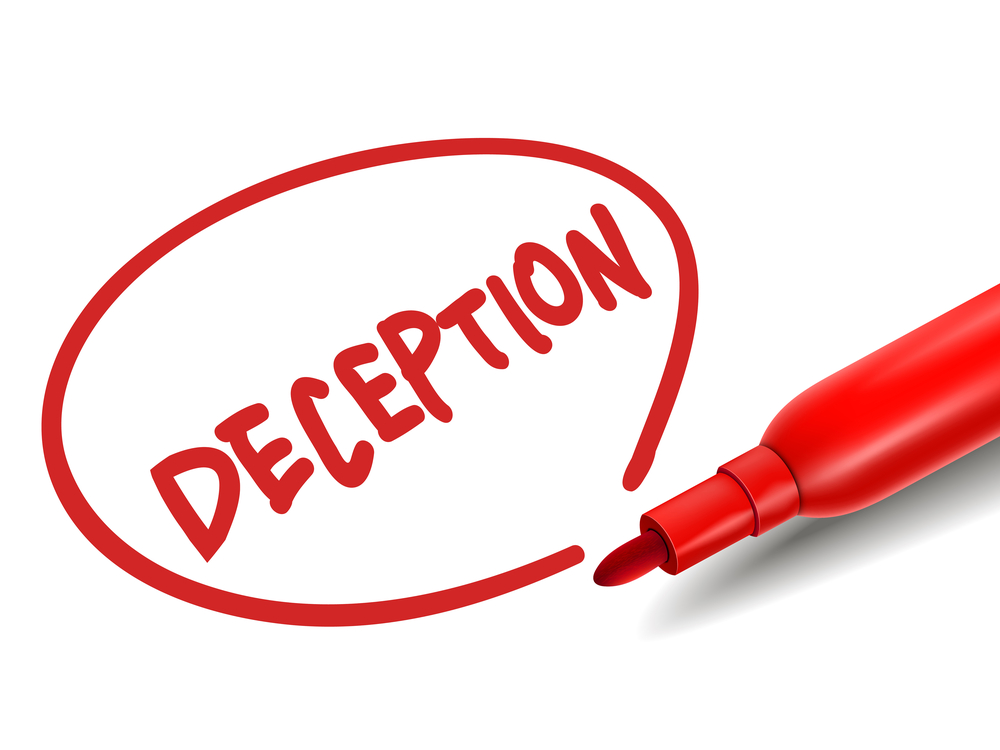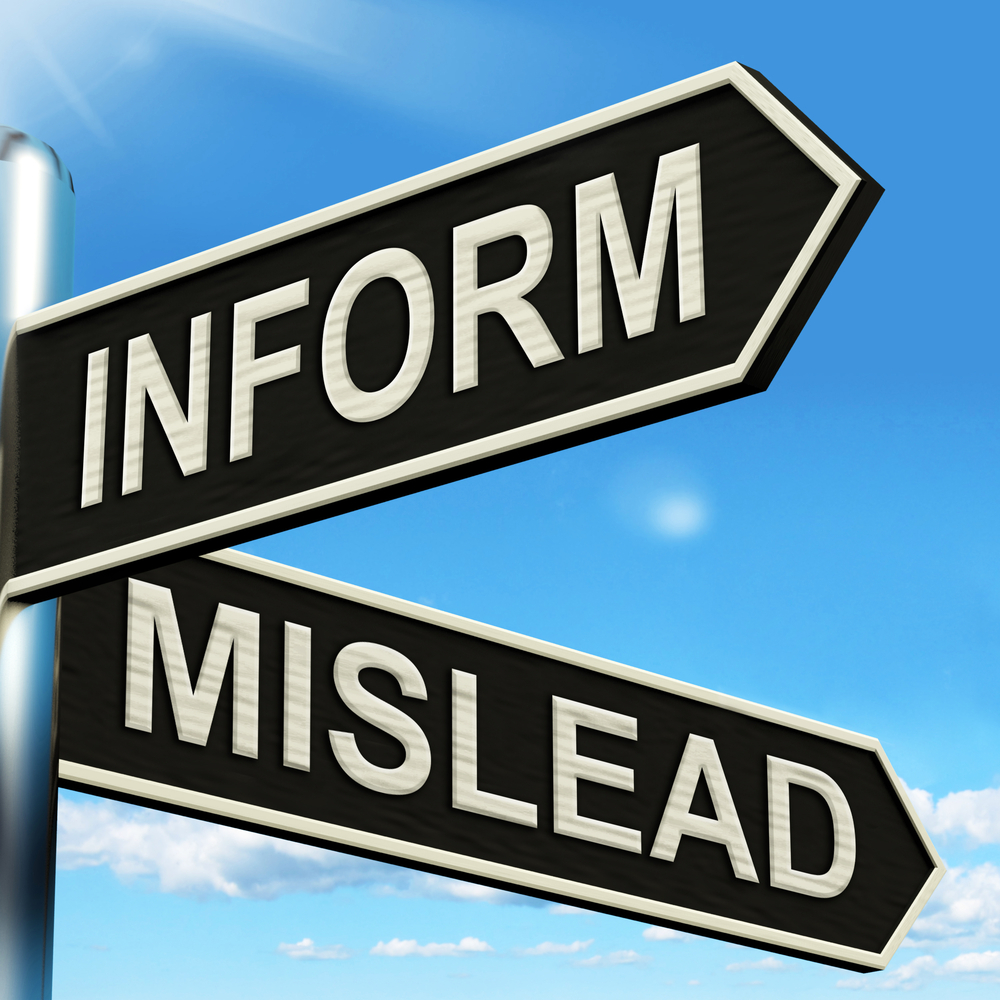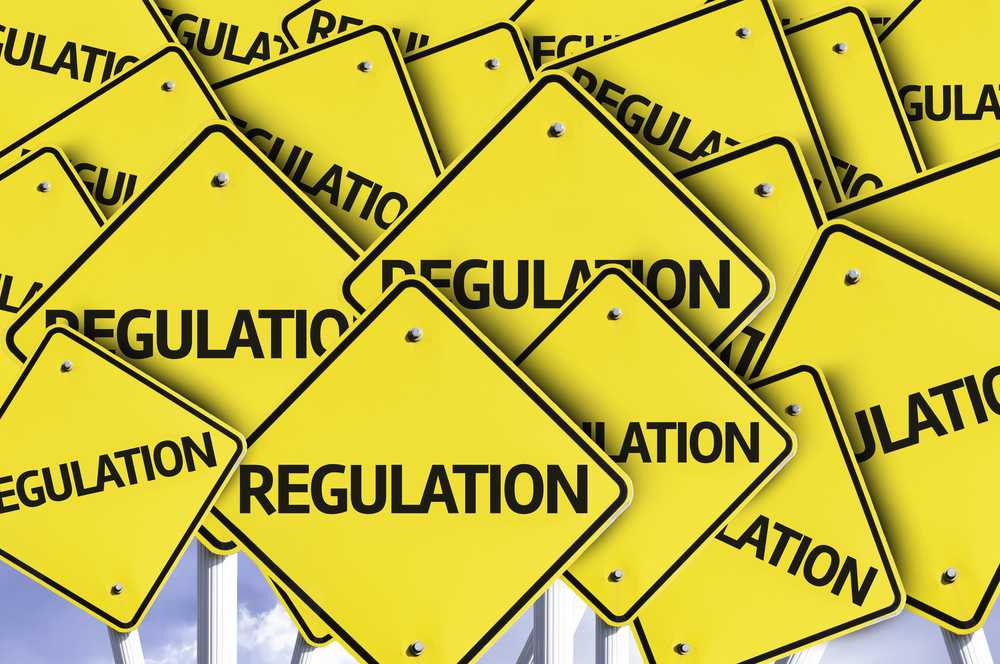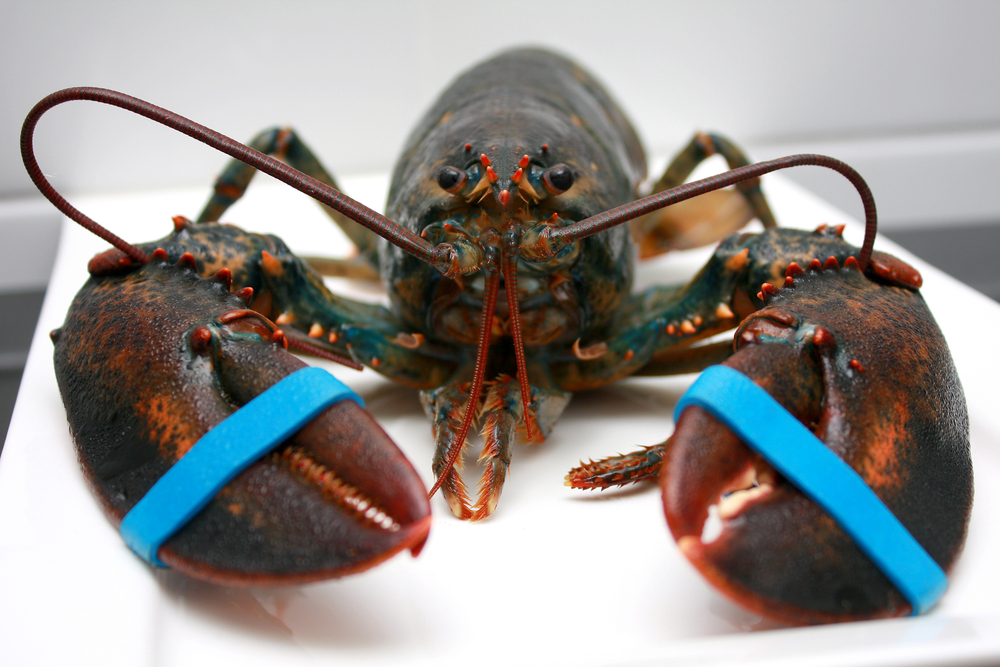All posts by NFI Media
Good Housekeeping… Bad Reporting
August 3, 2016
Brooke Siegel
Director of Editorial Operations
Good Housekeeping
VIA EMAIL
Dear Ms. Siegel,
An article People Want Retailers to Stop Selling Chicken of the Sea, Bumble Bee Tuna and Starkist currently featured on GoogHousekeeping.com is rife with errors and reeks of sloppy, cut and paste press release journalism that is an embarrassment to your storied publication.
For starters reporter Lauren Smith names three specific companies in her headline yet it would appear she never reached out to any of them for comment. The National Fisheries Institute is the trade association that represents all three. Is it a common editorial practice for Good Housekeeping not to contact the subject of your reporting for comment?
Further, the headline claims “people” are interested in having retailers stop carrying certain canned tuna brands. This suggests the campaign is somehow consumer driven. It is not. There are no consumer-based calls for retailers to stop carrying these and or other tuna brands. This is a corporate Greenpeace fundraising campaign plain and simple. Your headline is erroneous and misleading.
The article goes on to claim that Fish Aggregating Devices (FAD) are responsible for excessive by catch. It is clear on a number of levels that Ms. Smith did no actual research of her own, nor did she challenge Greenpeace’s press release at all. In fact, as evidence of the problems she claims arise from FADs she links to a WWF (World Wildlife Fund) fact sheet that does not mention FADs. She is either unaware or fails to report that WWF is a partner with Chicken of the Sea, Bumble Bee Tuna and Starkist in the International Seafood Sustainability Foundation which devotes all of its work to tuna sustainability.
Ms. Smith also fails to report that published, peer-reviewed science has determined that FADs have bycatch rates similar to, or lower than, other fishing methods, a fact intentionally obscured by Greenpeace. When Ms. Smith concealed this fact from your readers was that out of ignorance or part of an agenda?
It is strange that your magazine chose to report on Greenpeace’s press release but not on the fact that these very types of corporate blackmail attacks have caused companies to sue Greenpeace in federal court under RICO laws—the same laws used to prosecute the mafia and other organized criminal enterprises. Indeed, Greenpeace has faced legal action on multiple continents in recent years—for everything from staging mock terror attacks to irreparably vandalizing priceless historical artifacts. This even as Greenpeace’s financial practices are under investigation after a string of controversies, including millions lost on a risky currency bet and the revelation that they pay for a top executive to commute to work by jet. Reporting on Greenpeace’s campaigns without mentioning these clear and present issues is tantamount to journalistic malpractice.
Please let us know how and when you intend to further edit this article to addresses this issue.
Thank you.
Gavin Gibbons
Vice President, Communications
National Fisheries Institute
cc: Jane Francisco
Editor in Chief
Good Housekeeping
Greenpeace Continues Track Towards Irrelevance
Over 100 Nobel laureates have signed a letter to Greenpeace, asking the radical environmental group to end their campaign against genetically modified organisms. The letter’s signers include Nobel Prize winners in physics, medicine, chemistry and economics.
In a report from the Washington Post, signer Richard Roberts, winner of the 1993 Nobel Prize in medicine, criticizes Greenpeace for its “damaging” and “anti-science” practices noting that their misleading narratives are often just “a way for them to raise money for their cause.”
This isn’t the first time Greenpeace has come under fire for using scare tactics to round up monetary support. In fact, the forestry community is so fed up with Greenpeace’s practices that they filed a lawsuit against the group alleging racketeering. In the suit they call Greenpeace a “global fraud.”
Greenpeace’s stunts have gone from headline grabbing events, designed to draw attention to environmental causes, to efforts that are now accused of being part of a criminal enterprise. The group even trampled on delicate 1,500 year old monuments in the Peruvian desert in a stunt that the government called a “slap in the face at everything Peruvians consider sacred.”
A clear pattern is emerging when it comes to Greenpeace as it becomes a marginalized shell of its former self.
Greenpeace’s misguided attacks on canned tuna, that receive little if any attention because the campaign is such a blatant fundraising excuse based on few facts and a lot of plushy costumed hyperbole, has helped complete the group’s slide into embarrassing irrelevancy.
Lawsuit Says “Greenpeace is a global fraud”
Greenpeace is in the news yet again. This time, however, the radical environmentalist group is facing a lawsuit from the forest products industry. To no one’s surprise, the plaintiffs say Greenpeace is a global fraud, calling out the fundraising behemoth for what it describes as extortion and misappropriation of funds.
The seafood community is no stranger to Greenpeace’s disingenuous racketeering-like strategies. The paper industry’s lawsuit even cites Greenpeace’s longtime campaign against commercial seafood, in which the group routinely uses absurd claims to accuse companies of unsustainable efforts, despite scientific evidence to the contrary. Further discrediting itself Greenpeace refuses to participate in real seafood sustainability science, likely because participation would inhibit Greenpeace’s fundraising potential and divert dollars away from marketing.
With a global operating budget of $300 million per year Greenpeace uses sensationalist claims and false advertising to rake in donations from unsuspecting supporters. Instead of using this money to make a real difference in the environment, Greenpeace generates videos and social media campaigns to further promote its duplicitous fundraising efforts. The lawsuit notes that 94% of Greenpeace revenue goes to salaries, administrative and fundraising budgets, office costs, IT, travel, lodging, conferences and telemarketing expenses.
Greenpeace’s empty claims are reminiscent of the recent allegations against Trump University. This type of con artist scam is something victims “often sing the praises of…until they realize they have been fleeced,” according to U.S. Court of Appeals judge Kim McLane Wardlaw.
After years of harassment, it’s clear forest product companies are fed up. Greenpeace’s penchant for what might be considered fraudulent fundraising has been an intrinsic part of its operation for years. The seafood community has always known that the Green Greenpeace cares most about is fundraising dollars– let’s see if this lawsuit exposes the group’s methods, tactics and real focus.
Former USDA & FDA Food Safety Czar Blasts USDA Catfish Program
Dr. David Acheson, is the former Chief Medical Officer at the USDA Food Safety and Inspection Service and former Chief Medical Officer at the FDA Center for Food Safety and Applied Nutrition. That means he’s been the Food Safety Czar at both agencies.
His latest column in Forbes: Catfish Regulation — A Perfect Example Of Wasted Resources In The US Government illustrates how real food safety experts feel about the USDA Catfish regulation program. The whole thing is, without question, worth the read. Here are some highlights:
- -“Proponents of USDA catfish regulation have long insisted the need to switch catfish, and just catfish, from the Food and Drug Administration (FDA) to the Agriculture Department (USDA) is predicated on a public health concern. This narrative is a compelling one but is also nonsense.”
- -“The USDA have touted the fact that they found shipments of catfish that contain chemical residues since taking over catfish inspection. However, what the USDA fails to point out is that the only reason it found these adulterated shipments was via FDA data.”
- -“Updated rhetoric in favor of keeping the program in place suggests the USDA’s recent discovery is an example that the program works. The untold truth about such USDA “successes” is that they were based on FDA targeting of suspected shipments. The USDA program has no such intelligence on incoming shipments and relies on FDA lists and logs. It’s not an unequivocal example of USDA’s superiority, it’s evidence of ongoing duplicating and a regulatory pantomime that goes along with it.”
Experts Say North American Lobster Not a Threat to Europe
The U.S. announced on Monday (06/06/16) that the North American lobster is not a threat to Europe and does not meet the criteria of an invasive species. A letter by Eileen Sobeck, Assistant Administrator for Fisheries at the National Marine Fisheries Service, National Oceanic and Atmospheric Administration (NOAA) was sent to EU officials stating “the US has serious concerns with the risk assessment used to support Sweden’s proposal to include American lobster (Homarus americanus) on the EU list of invasive species”.
The U.S. and Canada are refuting the Swedish Risk assessment, as it is not supported by the best scientific evidence available. The U.S. letter is backed up by through scientific reviews, including a joint report done by federal and state fisheries who extensively researched the claims presented in the Swedish Risk assessment. The U.S. scientists cited numerous peer reviewed scientific studies countering the Swedish assessment claims as unfounded.
Under the Invasive species definition, the North American lobster would need to not only arrive (in this case through escapement) and survive, but also become established and spread. To date, there is no scientific evidence to show a viable population can establish in the EU and experts say that’s unlikely to occur.
An Outbreak of Perspective
The CDC is out with its annual outbreak report, this one looks at data from 2014, and it’s worth offering a bit of perspective before the media hears from the hyperbole engines who will assuredly issue press releases that announce the sky is falling and the end of days is upon us.
Of the outbreaks attributed to a specific food product, the CDC numbers show seafood accounted for 63 outbreaks and 335 illnesses which makes up about 12% of the total. Numerically seafood tops the list based simply on the number of outbreaks but is nowhere near the top in actually causing illnesses.
By comparison land animals accounted for 1,182 illnesses making up 43% of the total of attributed illnesses. Interestingly seeded vegetables had only 7 outbreaks but accounted for 428 illnesses.
For reporters, producers and editors who might be covering this CDC compilation it’s important to recognize and report on the difference between outbreaks and illnesses. It’s quite possible for Product A. to account for 10 outbreaks with 30 illnesses, while Product B. accounts for 1 outbreak with 1,000 illnesses. The measure of actual impact is clearly illnesses.
Today… they got it right
NBC’s Today show has a fairly sad history when it comes to accurate reporting on seafood. But kudos to the morning show for making great strides in turning that unenviable track record around. These days they usually reach out for responsible input before running with the latest hyperbolic proclamation. Today they’re addressing 5 foods you should be feeding your baby and in keeping with the latest in nutrition science fish made the list. Hats off to Today.
Lost in Translation?
An English-language news outlet in Europe is reporting on a French Consumer Reports-style magazine that’s giving tips on grocery store products to avoid. The French magazine appears to take aim at canned tuna with a round of proclamations based on some fairly common quasi-science that we’ve seen from ill-informed activist types more than once on this side of the pond.
The French prognosticator—in a “study” that is neither peer-reviewed nor published in a technical journal and not in the least bit scientifically credible—suggests that a few of the canned tuna samples they tested exceeded the 1mg/kg (or ppm) level for mercury. With this information they pontificate on the relative safety of said tuna and suggest ones to avoid. This is the same publication that simultaneously reports on makeup removers, dishwasher tablets and whether your feet can be allergic to your shoes—cutting-edge stuff.
Were this nonsense published here in the states we might point out a few things, such as: the FDA’s 1.0 ppm level for mercury in fish includes a 10-fold safety factor. That means there’s a thousand percent cushion built in. To be specific, according to the FDA the level of concern from mercury in fish does not even start until 10.0 ppm. So, if a fish begins to approach the 1.0 ppm level or even slightly exceeds it, no scientist worth their salt (or sel) would suggest there’s imminent harm in the offing.
Examiner.com Bad For Us After All
A new article in Examiner.com, that claims “seafood might be bad for us after all,” exposes a fundamental lack of understanding of science coupled with a clearly lacking editorial process.
The article discusses a new study about environmental chemicals. To be clear, the study does not measure the health effects – good, bad, or otherwise – of eating seafood, or as the author specifically mentions, tuna.
Concern with pollutants is not specific to seafood. In fact, here is some perspective Examiner.com left out. Calculated using toxic equivalence (TEQ), the major dietary sources of PCBs and dioxins are beef, chicken, and pork (34% of total TEQ); dairy products (30%); vegetables (22%); fish and shellfish (9%); and eggs (5%). That’s right, people get more PCB’s from vegetables than fish. Would Examiner.com suggest salads “might be bad for us after all?”
In addition, the two and a half minute video that precedes the written article doesn’t say a word about fish or seafood a single time. And, the author of the study specifically says, “I eat fish and I consider fish to be a very healthy food.”
It’s clear the headline is a blatant violation of the Society of Professional Journalists Code of Ethics that says, “Provide context. Take special care not to misrepresent or oversimplify in promoting, previewing or summarizing a story.” The study did not even look at the effect of eating seafood on human health… yet Examiner.com alleges in its headline, “The fish is fishy: Why are researchers saying fish is bad for us?”
This article does a huge disservice to readers by scaring them away from a food they need to eat more of. Because of the known benefits of seafood consumption, researchers warn “Avoidance of modest fish consumption due to confusion regarding risks and benefits could result in thousands of excess Coronary Heart Disease (CHD) deaths annually and suboptimal neurodevelopment in children.”
Associated Press Wins Pulitzer for Labor Series
The Associated Press has taken home a Pulitzer Prize for its reporting on labor issues. The AP’s in-depth analysis and reporting went far beyond the broad brush strokes we’ve seen from various other news outlets that put little or no effort into finding specific evidence of labor challenges. Generic reporting on supposition and hyperbole does not win Pulitzers and the Associated Press proved that with this honor. Congratulations to reporter Martha Mendoza and her team.












